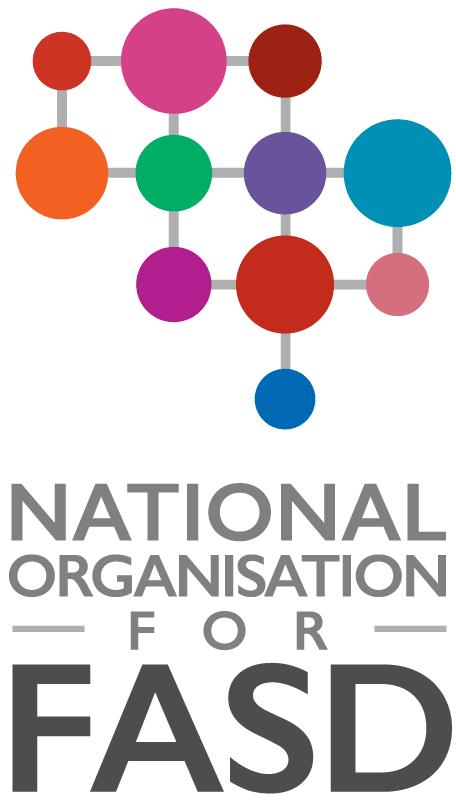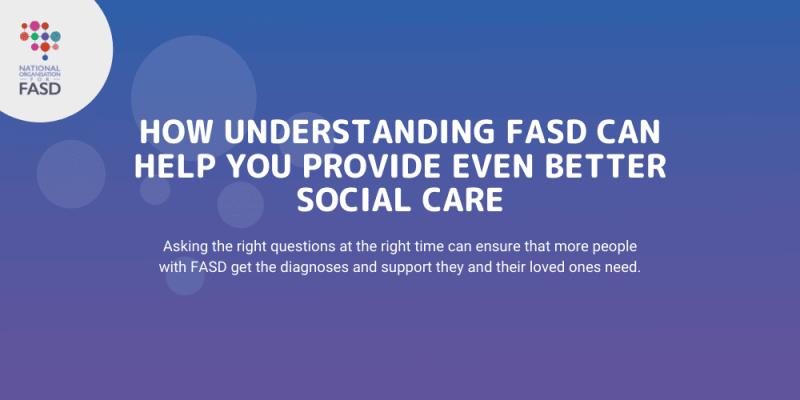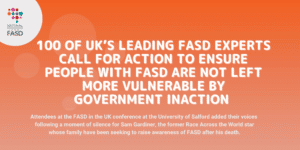Millions of people in the UK are living with FASD
Recent prevalence figures drawn from a study by the University of Salford this year, indicate that somewhere between 1.2 and 2.4 million people in the UK were living with FASD in 2020. Most of these people will be living with inaccurate diagnoses, or no diagnosis at all.
This is partly because FASD is a complex condition caused by prenatal alcohol exposure that can present as a range of other conditions, including behavioural and developmental conditions. Additionally, despite common misconceptions, less than 10% of people with FASD display sentinel facial features. Understanding of this highly prevalent condition is concerningly low in the UK, leaving millions without the support they deserve.
A lack of understanding can be harmful
A lack of understanding can lead to delays in accessing care for people with FASD and their families, by affecting the decisions and referrals made.
“These delays in offering support to the family may have further impact on the development and psychological wellbeing of the children and on the family’s ability to function.” (Adamson and Templeton)
Furthermore, as of 2019, there were 78,150 looked after children (Coram BAAF, 2019). A Peterborough study found that there was a history of prenatal alcohol exposure in 34% of these children.
34% of children looked after
75% of medicals for adoption
The role of a Social Worker is a powerful one
As a Social Worker, you play a vital role in helping those living with FASD, of any age, access the level of help and support they need. It’s important that you know how to spot the varied indicators of FASD, and what questions to ask and when to ask them.
Joanna Buckard, Special Projects Coordinator for National FASD and former Social Worker.
When should FASD be considered:
- Pre-birth assessment
- Initial assessment
- Disability
- Fostering and adoption
- Leaving care
- Adult Services
What could be considered?
- Have questions been asked about prenatal alcohol consumption?
- Is there any relevant information from other sources i.e. police, etc.
- How and where are we recording this?
- What do the family and young person need?
- How to avoid stigma, blame and remain non-judgemental
Because of the important role played by Social Workers, we at National FASD believe strongly in FASD training for everyone in the Social Care profession. In your role as a Social Worker, you are powerful in the lives of people with FASD and their families and carers, and helping to ensure that people receive a diagnosis and the subsequent care they deserve is a major step.
You can learn more about FASD and your role as a Social Worker as well as how to access expert-approved FASD training by clicking here.
For more information
For more about helping people with FASD and their loved ones access the support they need
Please visit our Social Workers page here.




